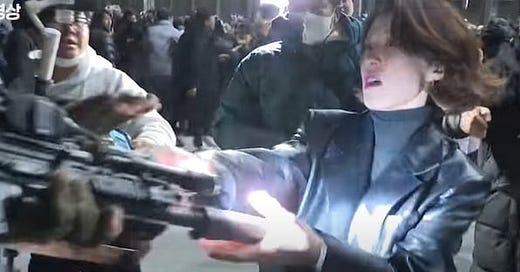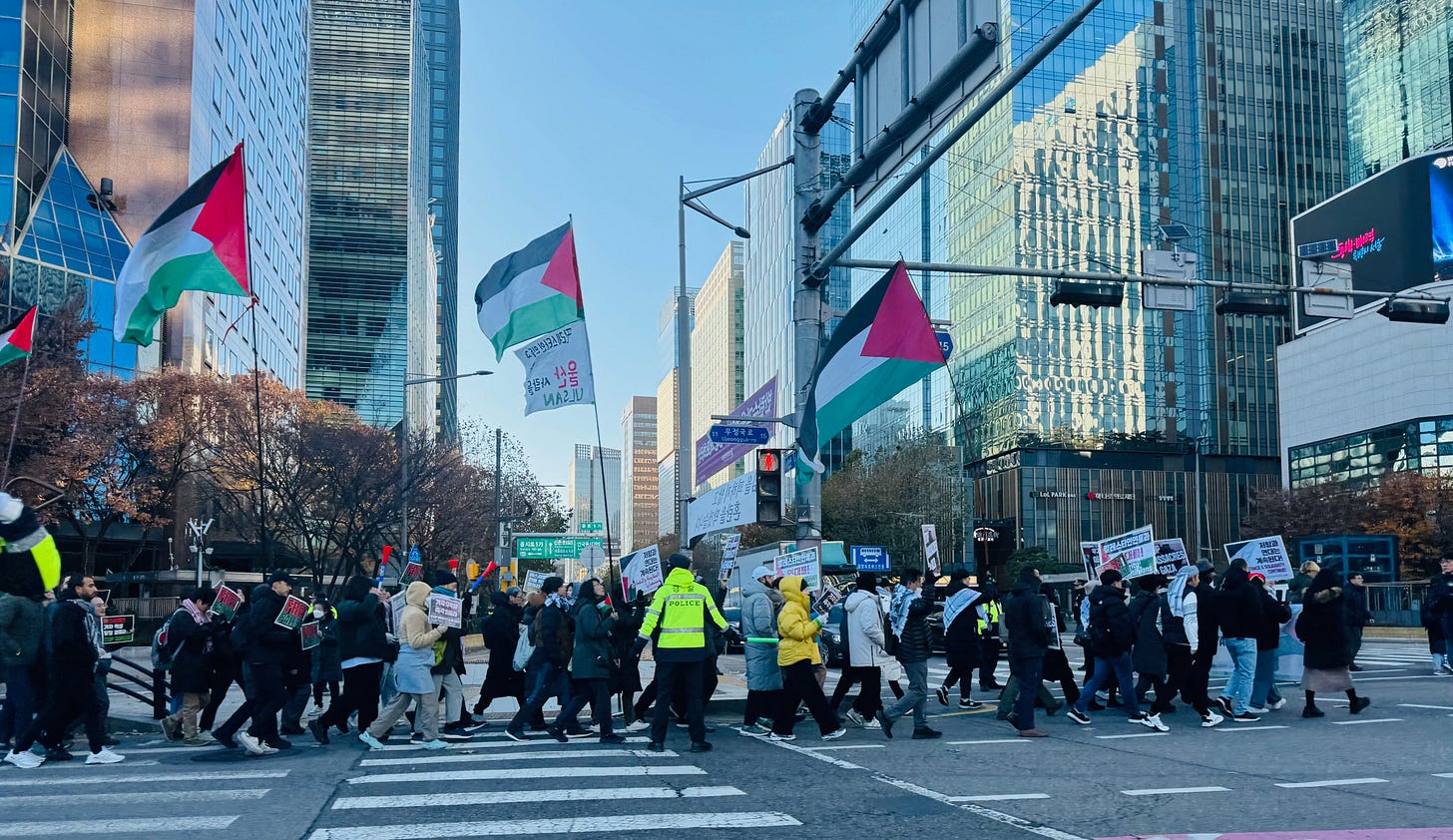I was in South Korea the day after President Yoon Suk Yeol attempted his coup; I was scheduled to give a lecture at Seoul National University. The organizers feared I might bail out like a number of other US speakers, but when the flight from Haneda wasn’t cancelled and I saw that every single seat was taken by Japanese tourists I figured I was fine.
On the surface it was as if nothing had happened. Seoul was doing its usual amazing Seoul thing (and it was doing its Siberia thing, too) but once you got talking to people the same divide that we have in the States became clear. Plenty of folks were trying to downplay the president’s insanity and plenty of folks, younger, were furious at the near destruction of their democracy. One student spent the entire night in the streets protesting the president with her parents, and if you don’t know Seoul winters you can’t imagine how hard something like that must have been for her and her viejos, and everyone else. But it's amazing what you will endure when the rule of law is at stake. I dropped in on one of the day-time protests and it was like the first flames of the fire next time.
What came through at the protest, at Seoul National University, and in nearly every conversation, was the love many South Koreans have for their hard-earned democracy. The incredible video of Ahn Gwi-ryeong courageously grabbing that soldier’s rifle in front of the National Assembly was no anomaly, but an expression of that love.
I keep up with South Korean politics because I know too many Koreans not to. I follow Choe Sang-Hun at the Times and Diplomatic Seoul here on Substack because they both strike this outsider as sensitive and knowledgeable. I have some awareness of the deadlocked politics, the stagnant economy, the collapsing population, the lack of social mobility, the poisonous men’s movement. I know South Korea ain’t an easy place to live in. I have a friend who is the first woman to hold a senior position at her university — the first ever — while another friend had to quit their job because their boss wanted them to perform a second job’s worth of unpaid labor, which they said is often par for the course.
And yet what happened in South Korea this past week is a sharp reminder that even messed-up democracies are worth defending — worth grabbing the barrel of a rifle for.
Because as some people know (and too many others seem to have forgotten) democracies, once destroyed, are not easily rebuilt — and what comes after a democracy is destroyed is always ineluctably worse than what came before.





